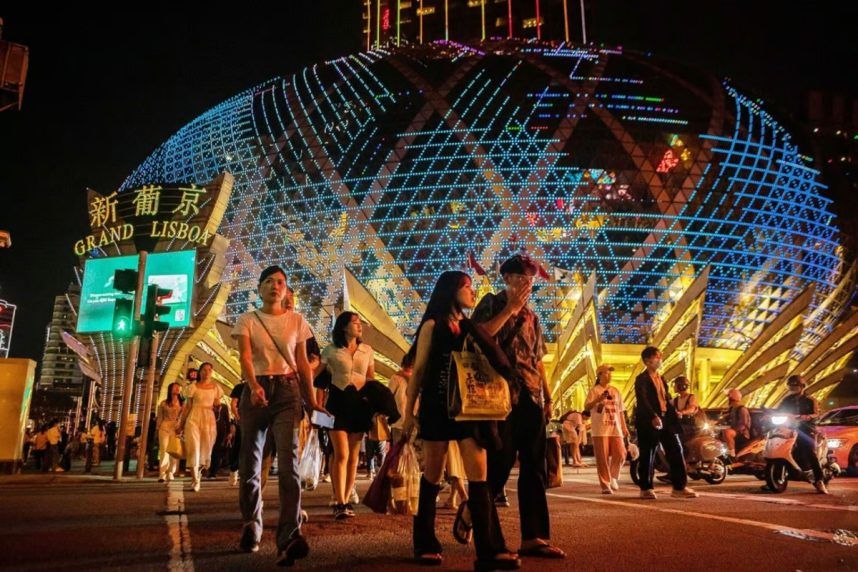
Casino entertainment have long been a engaging entertainment option, drawing millions of players from different cultures around the globe. From the glitzy casinos of Vegas to the bustling gambling halls of Macau, these games serve as a common thread that unites people across a variety of backgrounds. The allure of chance, skill, and gambling entices not only those looking to strike it rich but also those looking for a shared experience.
The influence of casino games extends far beyond the gaming floor. They often reflect the cultural standards and principles of the communities in which they thrive. Games such as poker, pontoon, and roulette have integrated into the fabric of mainstream culture, influencing various aspects from cinema to clothing. As we explore this intriguing intersection of gambling and culture, we can gain insights into how these games shape and are shaped by the surrounding world.
Chronological Progression of Gambling Games
The origins of casino games can be followed back to historical cultures, where gambling in different forms was widely performed. In Ancient China, around two thousand three hundred years before Christ, a type of gambling known as Keno was common, while in old the Roman Empire, soldiers would frequently wager on the outcomes of their matches. The concept of using randomness for entertainment and gain progressed over the ages, leading to the formation of more formal activities. By the final Middle Ages, gambling houses initiated to emerge in Europe, particularly in the Italian peninsula, which introduced early incarnations of popular games still practiced today.
As betting increased popularity in Europe, the 17th and 18th centuries saw the emergence of gaming houses as specialized locations for gaming. The earliest official gambling house, the Ridotto, was founded in the city of Venice in sixteen thirty-eight, providing activities like Baccarat games and the game Faro. This time marked a crucial shifting point, as gaming venues commenced to draw not just the wealthy but also the expanding middle class. The refinement of activities grew, leading to the development of new guidelines and variations that enhanced the gaming experience.
In the 19th century, the era of industrialization and shifts in societal conventions also altered the terrain of gambling games. The launch of the game of roulette and new slot machines drew a larger clientele, and casinos became seen as legitimate fun. This time witnessed the worldwide proliferation of gaming, as casinos spread from the continent to the Western Hemisphere, culminating in the development of the iconic Strip of Las Vegas in the twentieth century. The evolution of gambling games has continued into the present day, integrating modern technology and digital services, making them accessible to a worldwide market.
## Cultural Relevance within Various Communities
Gambling games have significant cultural value in many societies around the world. In Las Vegas, the very essence of the city is woven around gambling establishments, where playing is not just a pastime but a fundamental aspect of social engagement and community life. The vivid lights and lively atmosphere attract millions, showcasing how games of chance can influence local economies and cultural identities. This setting transforms the notion of leisure into an enriching encounter that affects fashion, melodies, and even film.
In contrast, some cultures approach betting with more caution, viewing it through the lens of ethical considerations and customs. For instance, in various Eastern societies, games like Mahjongg and Pai Gow Poker are steeped in history and carry significant social meanings. These games are often played during meetings and occasions, fostering collective connections and solidifying family ties. The act of playing these games goes above mere entertainment, reflecting values such as honoring elders and the value of communal fun.
At the same time, in continental countries such as Monte Carlo and the Italian Peninsula, games of chance serve as symbols of opulence and refinement. The refined atmosphere of these locations attracts both travelers and locals, reinforcing a sense of status and rarity. The art of the game of poker and the strategic elements of games like banker’s game are esteemed, molding community relationships and establishing an allure that fascinates a heterogeneous audience. This highlights how gambling can concurrently echo and influence cultural attitudes towards hazard, reward, and social interaction. đá gà trực tiếp
Financial Influence and Tourism
Gambling activities play a significant role in the financial context of many regions, particularly those that depend significantly on tourism. The revenue produced from gambling establishments fuels local economies, creating jobs not only within the casinos but also but also in connected industries such as hospitality, restaurant services, and recreation. This influx of tourists, drawn by the attraction of gambling and the overall gaming environment, stimulates spending across multiple businesses, contributing to the economic health of the region.
The existence of casinos often leads to the construction of infrastructure, including lodging, public transit, and recreational facilities. These developments are essential in improving the overall tourist experience, making locations more attractive to tourists. Additionally, many casinos contribute in local communities through support of activities and philanthropic activities, further integrating themselves into the social fabric of the region. Such investment not only supports economic growth but also cultivates a positive reputation of the casino industry.
Moreover, the global popularity of casino games drives tourism competition, with regions vying to attract players from around the world. Iconic destinations like Las Vegas and Macau have become identifiable with gambling culture, drawing millions annually. This competitive edge encourages innovation and variety within the gambling sector, influencing developments in leisure and hospitality that extend beyond their limits. The ripple effects of this visitor influx extend wide, impacting local financial health and cultural exchanges on a worldwide scale.
